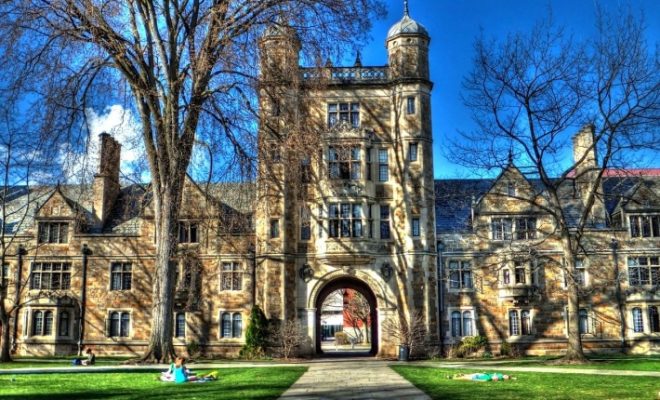#BlackLivesMatter and the myth of a postracial America

David Theo Goldberg, University of California, Irvine
The prevailing response from white politicians such as GOP presidential candidate Jeb Bush to #BlackLivesMatter has been “all lives matter.”
Democratic candidates Hillary Clinton, Bernie Sanders and Martin O’Malley were heavily criticized for initially responding to audience chants that “Black lives matter” with the response that “all lives matter.”
“All lives matter” is a given, almost a cliché. So why would an audience boo a presidential candidate expressing that thought? Because the phrase “All lives matter” dismisses racially structured conditions disadvantaging black people.
As I demonstrate in my most recent book, Are We All Postracial Yet?, insisting that black lives matter is necessary because – unlike “all lives” in this society – black lives are too often taken not to matter.
Presumed to be up to no good
Black people in the US are considered to not fully belong. Some people – Dylann Roof said it explicitly to the Charleston nine he murdered – consider black people not to belong at all. Black people are far too readily denied decent education and employment, stopped and frisked, apprehended, incarcerated, criminalized, animalized, killed.
Black people in America are objects of social suspicion. Blacks are presumed to be up to no good, to be no good. Black lives are flippantly extinguished, not least by the institutions of law and order, for no good reason other than being suspected because they are black. We need to insist “black lives matter,” to organize around it, because this society provides proof on a daily basis that for it, for many, blacks don’t.
“Black lives matter” is not a cliché. The truth it expresses is far from a given. Its anti-truth is evidenced in the fraught everyday of black lives: Walking while black, driving while black, speaking “as” black, speaking b(l)ack, shopping while black, being at home while black, being black at school, at the pool, in the hands of police, in prison. Just being black.
Black lives matter because this country was founded on black labor, the nation’s great wealth built on black suffering. Black lives matter because, as human life, black lives are often disacknowledged in the insistent universalization that “all lives matter.”
Further, we are a better humanity because of the deep insight black intellectuals and artists provide about what it means to survive in the face of repression, humiliation and death. Black lives matter in exemplifying dignity in the face of its denial, humanity in the face of humiliation. Black humanity matters in celebrating life in the face of suffering, contributing extraordinarily to science, letters and culture. Consider Benjamin Banneker’s contributions to astronomy and clockmaking, Kenneth Clark’s work evidencing the psychological effects of racism on children, W E B du Bois’s challenges to traditional sociology, Marian Anderson’s operatic brilliance in the face of white rejection, Toni Morrison’s extraordinary writing, and on and on.
Black people have represented the country in the highest of ways while being maligned in the most malicious of ways. Black lives matter because the historical struggle for rights, justice and full citizenship has been America’s struggle to fulfill itself, the rights achieved on black backs ultimately the rights of all.
Black lives matter because black people continue to exemplify what it means to be human in the face of inhumanity and dehumanization, to live a human life against the constraints of “racialization,” in the face of insistent institutional violence and (social) death.
Gathering steam
And so, it is not surprising that some have begun to attack the movement.
Bill O’Reilly, self-proclaimed defender of black civil rights, has called the movement’s leading organizers “loons.” He dismisses the movement for “using Gestapo tactics.” Fox & Friends host Brian Kilmeade has characterized #BlackLivesMatter as a “murder mob” that should be branded a “hate group.”
Conservative commentator John McWhorter, repeatedly declaring racism over in America, has likened the anti-racist movement to a “religious cult.”
Pushing back against this dismissal, “#BlackLivesMatter” has moved steadily from the margins to contest the mainstream. They mix streetwise protest and savvy social media use, legal challenge and advocacy. They disrupt, shout down, resist.
“#BlackLivesMatter” is gathering steam as the compelling rights movement, a liberation struggle of our time. The social movement is surfacing rampant subterranean police violence and discrimination toward black people, holding police accountable for the stream of killings suffered by innocent, unarmed black folk by officers and their surrogates.
“#BlackLivesMatter” challenges political leadership to realize blacks’ full rights. They have prompted the Bernie Sanders presidential campaign to take seriously the concerns they are pushing, to engage with the affiliated Campaign Zero seeking to transform policing culture and its oversight. Likewise Hillary Clinton.

Is Bernie Sanders out of touch with black issues?
Jay Paul/Reuters
“#BlackLivesMatter” works to advance the longstanding liberation struggles of black folk. Taking its cue from the abolition to the civil rights movements, they have built global networks of moral and material support. In a world in which white people are a shrinking minority, fully recognizing that black lives matter is both a political and moral imperative. This is no longer a world, if it ever was, one can endlessly dominate or suppress by militarizing the police locally or globally.
All this is not to say the social movement that is “#BlackLivesMatter” is beyond criticism. Movement spokespeople have largely failed to link the trials of black life in America to a critique of prevailing political economy producing the structural conditions reproducing inequality for blacks. There are slippages in strategy, sometimes a lack of clarity on what is being demanded of political candidates, occasionally inconsistencies between various representatives. All of this may be attributed to the growing pains of a liberation movement that includes horizontally distributed decision-making, soft leadership and widespread use of social media. This is a social landscape in sharp contrast with that of the civil rights movement.
Compelling social movements are struggles against entrenched structures and cultures of entitlement, self-protected privilege and unquestioned institutional access for the anointed to the exclusion of the unbelonging.
Everyone is humanized both by the work of “#BlackLivesMatter,” the social movement, and especially as a result of actualizing the realization that black lives matter as much as those with full social standing. Establishing in full that black lives matter, as social value, civil rights commitment and liberation struggle, makes for the sort of society we should be striving collectively to realize.
![]()
David Theo Goldberg, Director of the University of California Humanities Research Institute, University of California, Irvine
This article was originally published on The Conversation. Read the original article.
Check out all of our posts on Hillary Clinton here.






